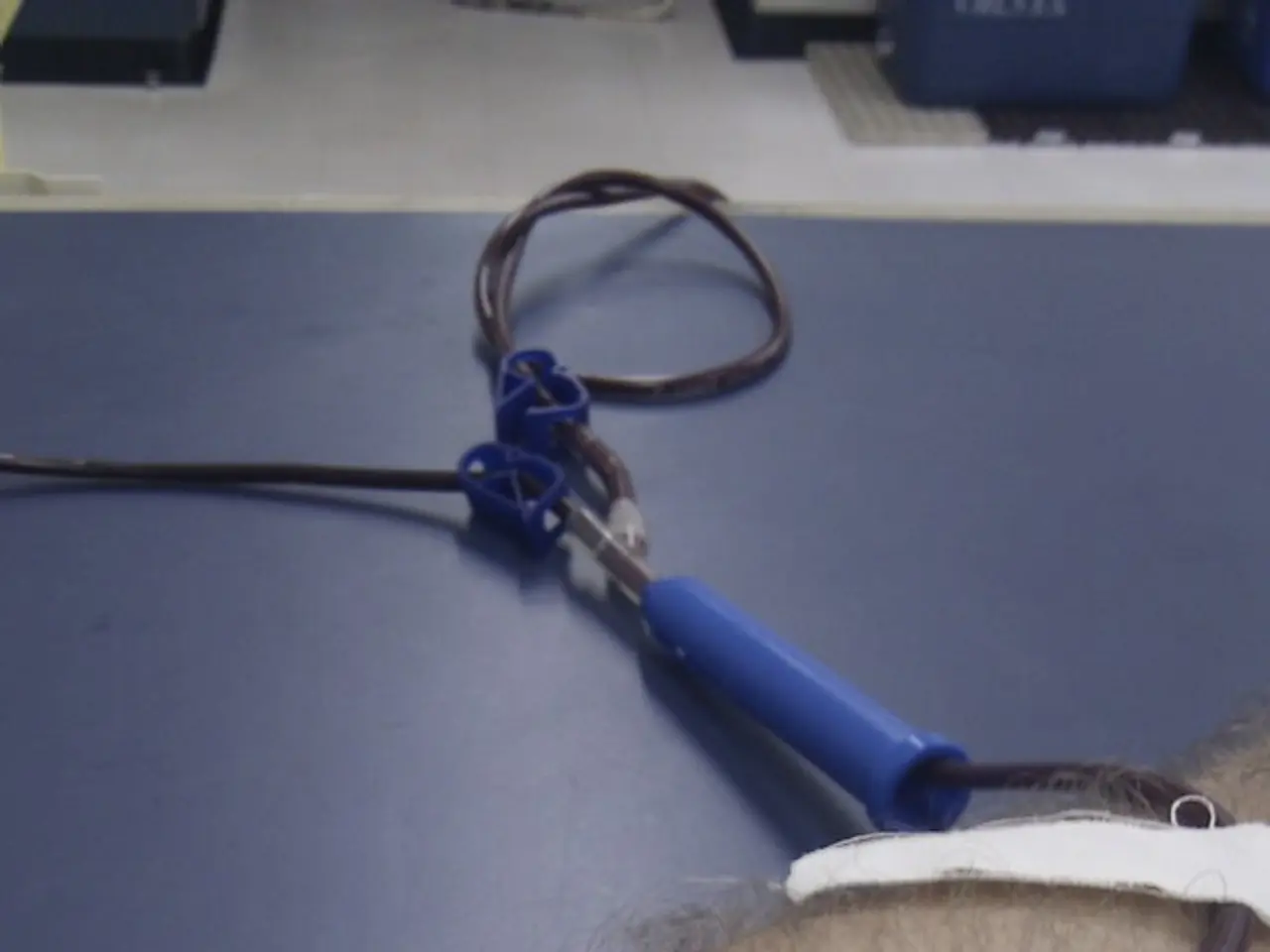Exploring Thyroid Health: Unraveling the Process of Thyroid Gland Inspections
Understanding Thyroid Examinations: A Key to Managing Thyroid Disorders
Thyroid examinations are a crucial part of diagnosing and managing thyroid disorders. These tests aim to assess the function and structure of the thyroid gland and identify any potential issues.
How is a Thyroid Examination Conducted?
- Medical History and Physical Examination A healthcare professional gathers information about symptoms and performs a physical examination of the thyroid gland to assess its size, shape, and feel for any lumps [1].
- Blood Tests Blood tests measure the levels of thyroid hormones (T3 and T4) and thyroid-stimulating hormone (TSH) in the blood. These results help determine the thyroid's activity (either hyperactivity or hypoactivity) [1].
- Ultrasound (USG) of the Thyroid This non-invasive imaging study uses high-frequency sound waves to evaluate the size, structure, presence of lumps or inflammation in the thyroid gland, and the condition of nearby lymph nodes. USG is also used for pregnant women or people who cannot undergo radioactive iodine testing [1][2].
- Radioactive Iodine Uptake Test This test involves administering a small amount of radioactive iodine and measuring how much iodine the thyroid gland absorbs. High iodine uptake indicates hyperactivity (such as Graves' disease), while low uptake may suggest inflammation or hormone release from a damaged thyroid [1].
- Thyroid Stimulating Hormone Suppression Test (Werner Test) Less commonly performed, this test involves administering synthetic triiodothyronine (T3) and observing the effect on TSH secretion, which aids in the differential diagnosis of hyperthyroidism [3].
The Role of Thyroid Examinations in Identifying and Managing Thyroid Disorders
- They help diagnose hyperactivity and hypoactivity of the thyroid gland, autoimmune diseases, tumours, and inflammations.
- They allow for monitoring the effectiveness of treatments for these conditions.
- They help determine further action, such as recommendations for pharmacological, surgical, or radioiodine treatment.
- USG makes it possible to detect abnormalities that are not detectable during a physical examination [1][2].
In summary, comprehensive thyroid examinations combining medical history, physical examination, hormonal tests, and imaging techniques are essential for accurate diagnosis and effective management of thyroid disorders [1][2][3].
Early detection is crucial for successful treatment of thyroid cancer, a concern for individuals of all ages and backgrounds. Regular check-ups and proactive care can help ensure that thyroid disorders are identified and managed effectively, promoting overall health and well-being.
[1] NHS. (2020). Thyroid function tests. Retrieved from https://www.nhs.uk/tests-procedures/blood-tests/thyroid-function-tests/
[2] Mayo Clinic. (2021). Thyroid function tests. Retrieved from https://www.mayoclinic.org/tests-procedures/thyroid-function-tests/about/pac-20394952
[3] UpToDate. (2021). Thyroid function tests. Retrieved from https://www.uptodate.com/contents/thyroid-function-tests
- Thyroid disorders can lead to chronic diseases and worsen health conditions, making workplace wellness programs important for early detection and management.
- Proper thyroid management can improve mental health, focusing on anxiety, depression, and cognitive changes associated with thyroid imbalances.
- Men's health considerations include the impact of thyroid disorders on sexual health, energy levels, and reproductive function.
- On the other hand, women may worry about thyroid disorders affecting fertility, menstrual cycles, and menopause-related symptoms.
- Aging brings increased susceptibility to thyroid problems and potential complications for older patients, including cardiovascular health and weight management.
- Health and wellness apps and trackers can help individuals and healthcare providers keep track of medications, diet, exercise, and other factors influencing thyroid health.
- Eye-health, hearing, digestive-health, respiratory-conditions, skin-conditions, and autoimmune-disorders may also need to be assessed and managed alongside thyroid disorders for overall health care.
- Medicare coverage options are available for eligible individuals needing therapies, treatments, and surgeries related to thyroid disorders, as well as any concurrent medical-conditions or treatments. Parenting in cases where a thyroid disorder affects the entire family should also include knowledge and support for weight-management, nutrition, and skin-care for all members.




